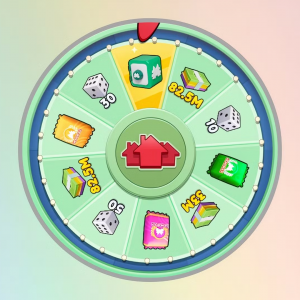Purchasing or selling a home in Vancouver is a significant investment, and the stakes are high. With Vancouver’s unique climate, aging housing stock, and diverse property types—from condos and townhouses to heritage homes and luxury estates—ensuring a home is safe, functional, and free from hidden issues is crucial. A professional home inspection in Vancouver provides the peace of mind every buyer or seller needs.
In this guide, we’ll explore why home inspections are vital, what they include, common issues in Vancouver homes, costs, and tips for choosing a trusted inspection service.
Why Home Inspections Are Essential in Vancouver
Vancouver’s real estate market is competitive and expensive. Even seemingly perfect properties can hide issues that may not be immediately visible. A home inspection allows both buyers and sellers to:
1. Protect Your Investment
A home inspection identifies structural, electrical, plumbing, and safety issues. Knowing about potential problems before committing to a purchase can save thousands in future repairs.
2. Negotiate with Confidence
Inspection findings can provide leverage during price negotiations or allow you to request repairs before finalizing a sale.
3. Ensure Safety
From outdated wiring to mold growth, inspections identify hazards that could threaten residents’ health and safety.
4. Avoid Unexpected Costs
Unexpected repairs, especially in older Vancouver homes, can be financially draining. A thorough inspection reduces surprises.
Vancouver’s Unique Housing Challenges
Vancouver’s geography and climate present unique challenges for homeowners and buyers:
Rain and Moisture
Vancouver receives over 1,200 mm of rainfall per year, creating conditions for leaks, mold, and water damage in basements, roofs, and exterior walls.
Older Homes
Many Vancouver neighborhoods, including Kitsilano, Shaughnessy, and Mount Pleasant, feature homes built before 1970. These properties may have outdated electrical systems, plumbing issues, or structural concerns.
Condos and Townhouses
High-rise condos and multi-unit buildings require careful inspections of common areas, HVAC systems, and building envelopes. Strata documents also need review for pending maintenance fees or repairs.
Seismic Risks
Vancouver is in a seismically active region. Older homes may lack earthquake reinforcement, which is a vital consideration during inspections.
What Is Included in a Home Inspection in Vancouver?
A home inspection is a thorough visual assessment of a property’s accessible and visible components. The scope usually includes:
1. Structural Elements
Inspectors examine:
- Foundation and basement
- Floors, walls, and ceilings
- Roof structure
- Signs of settling, cracking, or water damage
2. Roof and Exterior
Key areas include:
- Shingles, tiles, or other roofing material
- Gutters, downspouts, and drainage
- Siding or stucco
- Doors and windows
- Decks and balconies
Due to Vancouver’s rain, moisture damage and rotting wood are commonly found.
3. Electrical Systems
Inspectors check:
- Circuit breakers and service panels
- Wiring type and condition
- Electrical outlets and switches
- Safety devices (GFCI/AFCI)
Older homes may still have knob-and-tube wiring or overloaded circuits, which can be dangerous.
4. Plumbing Systems
Includes evaluation of:
- Water supply lines
- Drainage and venting
- Hot water tanks
- Faucets, sinks, and toilets
- Pipe materials (Poly-B and galvanized pipes can be problematic)
Water pressure and leakage issues are especially common in Vancouver.
5. Heating, Ventilation, and Air Conditioning (HVAC)
Inspectors assess:
- Furnaces and heat pumps
- Ductwork and ventilation
- Thermostat and controls
- Overall system performance
Proper HVAC function is critical in Vancouver’s wet climate to prevent mold and maintain energy efficiency.
6. Interior Components
- Floors, walls, and ceilings
- Cabinets and fixtures
- Stairs and railings
- Appliances (if included in the sale)
7. Insulation and Ventilation
Proper insulation helps with energy efficiency and reduces the risk of mold. Inspectors evaluate attic insulation, ventilation, and moisture barriers.
8. Safety Systems
Inspection includes:
- Smoke and carbon monoxide detectors
- Handrails and guardrails
- Fireplaces and chimneys
- Potential hazards like mold, asbestos, or radon
Common Issues Found in Vancouver Homes
1. Moisture and Water Damage
Vancouver’s damp climate often causes:
- Leaky basements
- Roof leaks
- Mold behind walls or under flooring
- Damage to wood siding
2. Roof Deterioration
- Missing or damaged shingles
- Poor flashing around chimneys or vents
- Moss growth leading to rot
3. Electrical Hazards
- Outdated panels
- Knob-and-tube wiring
- Aluminum wiring in older homes
- Improper grounding
4. Plumbing Problems
- Poly-B piping corrosion
- Dripping faucets and low water pressure
- Leaky toilets or showers
5. Structural Issues
- Foundation cracks
- Uneven floors
- Wall cracks or bowing
- Rotting wooden beams
6. Pest Damage
- Termites or carpenter ants
- Rodents in attics or crawlspaces
- Signs of infestations affecting structural integrity
Home Inspection Costs in Vancouver
The cost of a home inspection varies depending on property size, type, and age:
- Condos: $300 – $450
- Townhouses: $350 – $550
- Detached homes: $450 – $800
- Heritage or large properties: $800 – $1,500
Additional services may include mold testing, radon detection, sewer inspections, or thermal imaging. These are often optional but recommended for older homes.
How to Choose a Reliable Home Inspection Company in Vancouver
When hiring a home inspector, consider:
1. Certification and Licensing
Look for inspectors certified by organizations such as CAHPI (Canadian Association of Home & Property Inspectors) or CPI (Certified Professional Inspector).
2. Experience with Vancouver Properties
Local experience ensures familiarity with common issues in Vancouver’s climate and housing stock.
3. Comprehensive Reporting
The inspection report should include detailed observations, photos, and repair recommendations.
4. Modern Tools
- Thermal imaging
- Moisture meters
- Drone inspections for roofing
- Digital reporting
5. Reputation
Check online reviews, testimonials, and referrals.
Home Inspections for Specific Property Types
Condos
- Evaluate appliances, plumbing, HVAC
- Check windows, doors, and ventilation
- Review strata documents for future repair costs
Older Homes
- Inspect electrical systems, plumbing, and foundation
- Look for lead paint, asbestos, and water damage
Townhouses
- Examine shared walls and foundations
- Check roofs, decks, and exterior elements
Tips for Buyers
- Always attend the inspection.
- Review the full report carefully.
- Don’t ignore minor issues—they may indicate larger problems.
- Use the report to negotiate repairs or price adjustments.
- Consider additional tests for mold, radon, or asbestos if needed.
Tips for Sellers
- Conduct a pre-listing inspection.
- Address major issues before listing.
- Be transparent with buyers about known problems.
- Use inspection reports to speed up sales.
- Highlight strengths such as updated systems or renovations.
Hipwex: Trusted Home Inspections in Vancouver
At Hipwex, we provide professional and reliable home inspections throughout Vancouver and the surrounding areas. Our certified inspectors use advanced tools and thorough methods to give buyers and sellers peace of mind.
Whether you’re buying a condo in downtown Vancouver, selling a family home in East Vancouver, or investing in a townhouse in Burnaby, Hipwex delivers clear, comprehensive inspection reports you can trust. With our services, you’ll have the knowledge needed to make informed decisions and avoid costly surprises.








